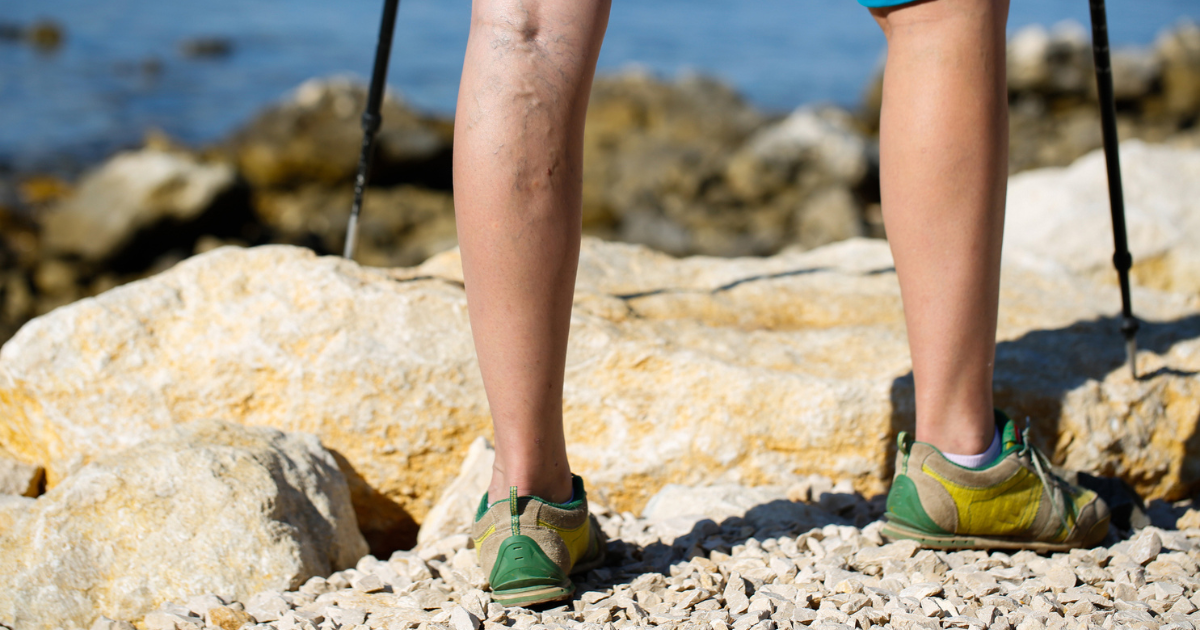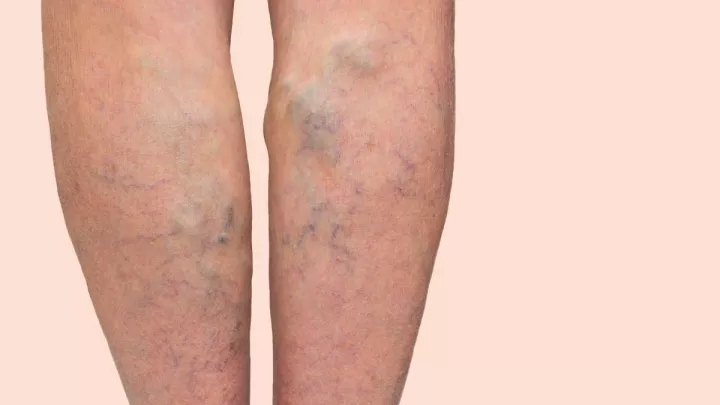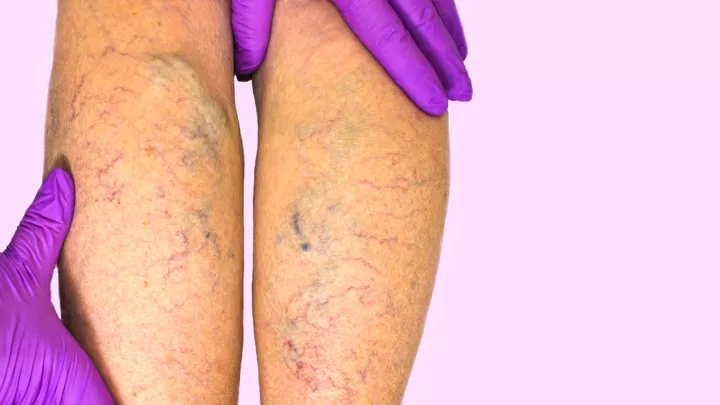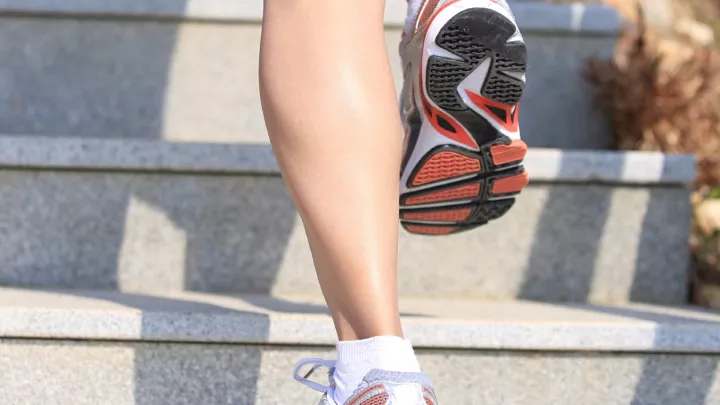How to manage varicose vein symptoms in the summer

The summer heat impacts us all, for better or worse. About 1 in 3 people in the United States deal with varicose veins, and in the heat, symptoms can intensify. Read on to learn how to ease varicose vein symptoms in the summer.
Anyone dealing with varicose veins knows the pain and how uncomfortable they can be. In the summertime, flare-ups and symptoms can worsen. Jonathan Thompson, MD, vascular surgeon, explains why this can happen and how individuals can find relief.
First of all, what are varicose veins?
Varicose veins are twisted, large veins often visible on the legs. Valves in the vessels that help return blood to the heart malfunction and allow a backward blood flow. When the blood flows backward, it stretches the veins and causes blood to leak into the leg tissue. Dr. Thompson refers to this as having “leaky valves.”
“Varicose veins are abnormal veins in the legs or elsewhere, generally due to leaky valves in the superficial venous system,” says Dr. Thompson. “Most people think varicose veins are only cosmetic, which isn’t necessarily the case. Sometimes they can be asymptomatic, meaning people have them but encounter no problems. Often, however, there can be pain over the varicosity or heaviness in the legs. If there’s thin skin over the veins, there can be bleeding or wounds that don’t heal.”
What causes varicose veins?
“Unfortunately, there’s a significant heredity component; those who have them also have family members with varicose veins,” says Dr. Thompson. “The mechanism for it would be leaky valves in the superficial venous system. Those leaky valves can be worsened by jobs that require prolonged standing. They can also be brought on by pregnancy. That’s because the hormones released during pregnancy cause the veins to dilate and the valves open up, which leads to other veins becoming varicose.”
Additionally, varicose veins can be caused by old age or being overweight. About 3 in 10 adults have varicose veins, and women are more likely to develop them than men. Any veins in the body can become varicose, but because standing and walking cause more pressure in the legs and calves, the leg area is more common.
“The first side effect of varicose veins is pain,” says Dr. Thompson. “Rarely, they can bleed significantly or lead to ulcers. People may experience leg heaviness, cramping, and restless legs at night.”
Why do varicose veins feel worse in the summertime?
It can be difficult to enjoy being outdoors or activities in the heat, which is true for everyone. But with varicose veins, a different level of discomfort happens. The circulatory system works with the summer heat by increasing the size of veins. For someone with varicose veins, that means more bulging, discomfort, and a greater risk of health complications.
Varicose veins can cause itching, throbbing, heaviness, burning, and other irritations that intensify in the summer months.
“They’re also worse in the summer because people tend not to wear their compression stockings in the summertime,” explains Dr. Thompson.
He also emphasizes the importance of knowing “triggers” and how heat may intensify symptoms.
“In the summertime, exercise is important for those with venous reflux as it helps keeps the veins healthy and flowing,” says Dr. Thompson. “Swimming is great because it works the veins and helps offload pressure people may have because of varicose veins.”
Can you ever get rid of varicose veins?
Without medical treatment, the short answer is no, unfortunately. However, Dr. Thompson explains that there are strategies to provide relief and treatment.
“Generally, varicose veins won’t go away on their own,” says Dr. Thompson. “But people can develop superficial thrombophlebitis, which means the veins may feel hard or cord-like. That’s fairly uncommon. Having symptoms means that if you are having symptoms from your veins then there is a medical need to treat them. Medication can be injected into the veins, or we can do surgery to remove those veins.”
In addition to wearing compression socks, other treatment strategies include staying cool in the heat, wearing loose clothing and doing leg elevations several times a day. Keeping your legs above the level of your heart gives your veins a reset, he says.







